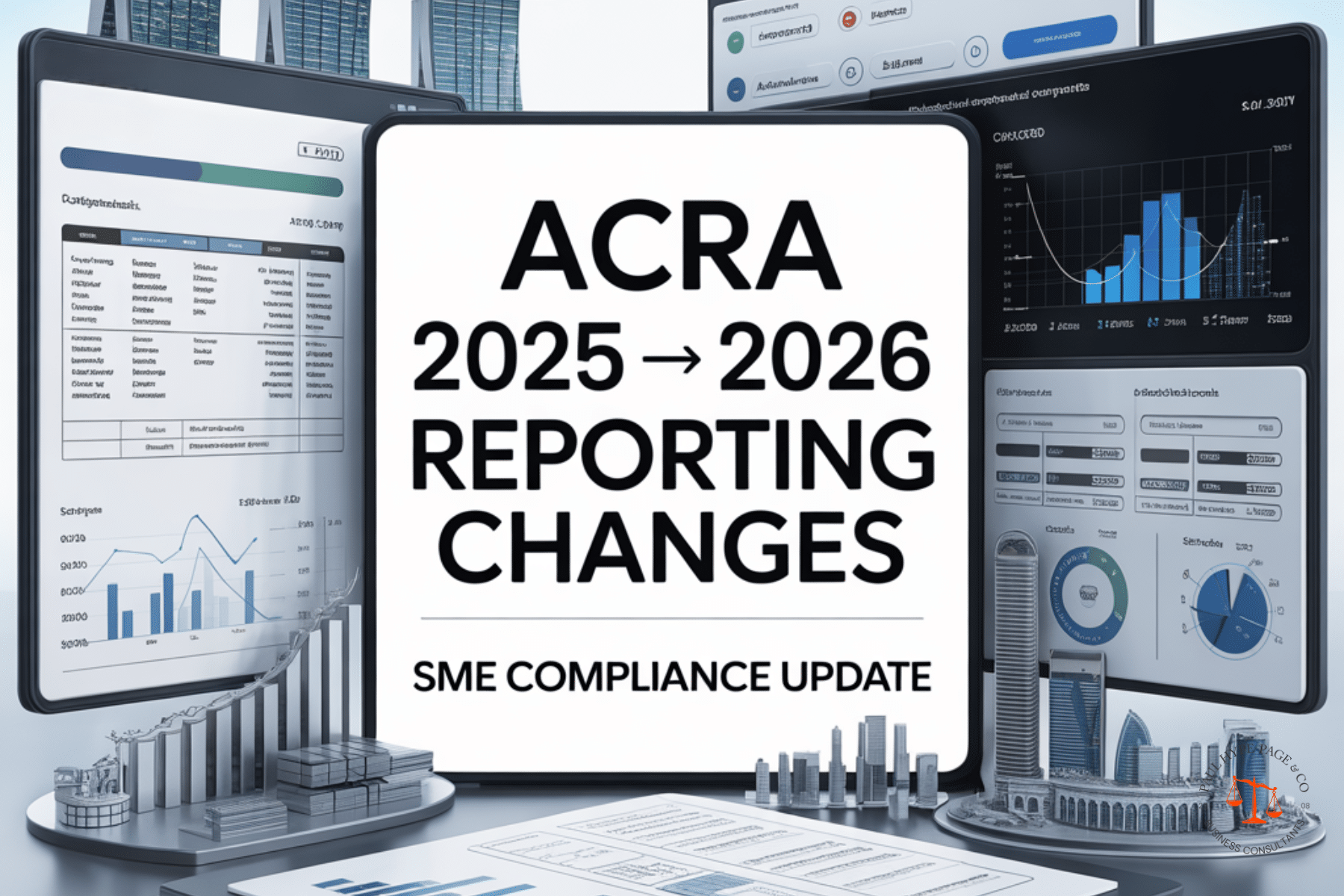Singapore Company Incorporation Guides
Guides
US–Asia tariffs in 2025–2026 are pushing founders and finance teams to rethink contracting, inventory ownership, transfer pricing, and documentation—not just landed cost. Singapore company incorporation can still be attractive as a neutral, rules-based regional hub when paired with strong accounting, tax governance, and real operational substance.
The MAS Consumer Price Developments report is a practical benchmark Singapore SMEs can use to stress-test 2026 budgets, pricing, and payroll—beyond headline inflation. This guide shows how to translate category-level inflation signals into defensible P&L and cash flow assumptions, contract updates, and salary review frameworks.
Foreign founders setting up a Singapore company in 2026 must think beyond incorporation and focus on tax readiness and work pass eligibility from day one. This guide explains how to structure your Singapore company to meet IRAS expectations, support Employment Pass approval, and avoid costly restructuring later.
ACRA’s 2025 reporting updates mark a major shift in Singapore’s financial compliance standards, particularly for SMEs preparing their year-end accounts. This article explains the updated requirements and outlines how businesses can prepare for stricter enforcement in 2026.
If you are planning to set up business in Singapore, opening a corporate bank account is one of an important steps. In this article, we will cover the requirements, as well as, the tips and tricks of opening a successful corporate bank account.
Expanding your business into Singapore? Our brief guide here streamlines the process of registering a branch office in Singapore and explains details on the taxation of Singapore branch office
Establishing a sole proprietorship in Singapore comes with its own set of pros and cons, and this article provides comprehensive details of the incorporation process.
Considering setting up a representative office in Singapore? Find out more in this article for permitting activities, requirements, documents and timeline for a successful establishment.
Discover how Singapore’s Unique Entity Number (UEN) streamlines your company incorporation by serving as a single, permanent identifier for all interactions with ACRA, IRAS, and other government agencies.
















